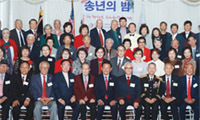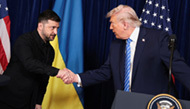Brazil Expands Sway With Centrist Policies

Luiz Inacio Lula da Silva, near right, publicly praises Hugo Chavez of Venezuela while he leads Brazil to a more prominent role.
By SIMON ROMERO and ALEXEI BARRIONUEVOCARACAS, Venezuela - President Hugo Chavez of Venezuela and President Luiz Inacio Lula da Silva of Brazil clasped hands here at a summit meeting late last month, as employees of Venezuela’s state oil company raised their fists and shouted Cuban-inspired socialist slogans before the cameras.
It was an image of solidarity that might once have alarmed Washington, which has seen the United States’ standing steadily eroded by a shift toward left-leaning, populist leaders across the region in the last decade.
But the carefully orchestrated event disguised a more recent turn in Latin America that presents new opportunities for the United States: Mr. da Silva has steadily distanced himself from Venezuela’s leader and quietly supplanted him as he nurtures Brazil into a regional powerhouse.
Today the two leaders, often partners but sometimes rivals, offer starkly different paths toward development, and it is Brazil’s milder and more pragmatic approach that appears ascendant. Amid the decline of American influence in the region, the Brazilian president is discreetly outflanking Mr. Chavez at almost every turn in the struggle for leadership in South America.
The key to Brazil’s success has been a lucky confluence of global economic trends, like rising demand for commodities like soybeans and sugar-based ethanol, but also the quiet stewardship of Mr. da Silva, a former auto plant worker. He has raised Brazil’s profile across the region in part by adopting a less confrontational approach to Mr. Chavez than that of the United States.
Instead of publicly denouncing Mr. Chavez, even when he has threatened Brazilian interests, Mr. da Silva taps into the kinship of the left and lavishes praise on him. Mr. da Silva went so far as to describe Mr. Chavez recently in the German magazine Der Spiegel as Venezuela’s “best president in a century.
“The pragmatic side of Lula, the union leader who was always a negotiator, has paid off,’’ said Kenneth Maxwell, a historian at Harvard University and a columnist for the Brazilian newspaper Folha de Sao Paulo.
“While Chavez grabs the headlines, the debate over whether Brazil is becoming a regional power is moot, he said. “Brazil has actually made it to that level, but in a very nonbombastic way.
Venezuela’s most pervasive influence remains limited to a handful of the region’s poorest nations - Bolivia, Cuba, Dominica and Nicaragua - members of ALBA, a trade alliance championed by Mr. Chavez. Meanwhile, Mr. da Silva’s unexpected embrace of the market-friendly ideas begun by his predecessor, Fernando Henrique Cardoso, has emphasized how heterogeneous political thinking has become in Latin America, even on the left.
While Mr. Chavez turned harder to the left after his brief ouster in 2002, Mr. da Silva shifted to the center once in power, surprising many skeptics. His lighter touch has warmed Brazil’s relations with countries as varied as Cuba, the Socialist bastion to which Venezuela provides a lifeline of subsidized oil, and Colombia, a top United States military ally whose relations with Venezuela have been strained in recent months.
In June, Brazil’s foreign minister, Celso Amorim, declared during a visit to Havana that Brazil wanted to extend credits for Cuba to import Brazilian agricultural products in hope of surpassing Venezuela as Cuba’s top partner. In Colombia, Brazilian investors recently took control of Avianca, Colombia’s largest airline.
Venezuela itself has grown more economically dependent on Brazil. Last month Brazilian agribusiness concerns forged deals to export more food to Venezuela, exploiting the persistent shortages in Venezuela’s economy caused by mismanagement and price controls.
In some countries where Venezuela and Brazil have emerged as rivals, like Bolivia, Mr. Chavez still has the upper hand. Bolivia, Brazil’s chief natural gas supplier, shocked Brazil in 2006 by nationalizing the energy industry, with Venezuela’s help. Last December, Mr. da Silva tried to enhance Brazil’s stature in Bolivia, South America’s poorest country, by extending a $600 million credit line for infrastructure projects there.
Meanwhile, Brazil’s trade surplus with the 11 other countries forming the Latin American Integration Association climbed to $16 billion in 2007 from $1.7 billion in 2002 .
Brazil hosted leaders of 12 South American nations in May to create Unasur, a continental bloc modeled on the European Union that unites the region’s two main trading groups, Mercosur and the Andean Community.
Brazil’s energy discoveries have also challenged Venezuela’s power. Mr. Chavez seemed particularly shaken last November by new estimates of the magnitude of an oil field off Brazil’s southeastern coast, known as the Tupi field. That find led Mr. da Silva to announce plans to join the Organization of the Petroleum Exporting Countries in a few years. Venezuela has long been Latin America’s main representative there.
In the security realm, Mr. Chavez was upstaged on July 2 when the Colombian military executed a rescue of 15 hostages, among them three American military contractors and Ingrid Betancourt, a former Colombian presidential candidate who was considered a key bargaining chip for the rebel group known as FARC.
The Venezuelan leader has successfully negotiated with the FARC for the release of six hostages since January. But his own ties with the group have come under such scrutiny that he has found himself calling for the FARC to give up its armed struggle.
Despite all of Brazil’s accomplishments in surging ahead of Venezuela in Latin America, Mr. da Silva has eschewed being labeled a leader in the region. “We are not trying to find a leader in Latin America, he said in a September interview. “We don’t need a leader. I am not worried about being the leader of anything. What want is to govern my country well.
스마터리빙
more [ 건강]
[ 건강]이제 혈관 건강도 챙기자!
[현대해운]우리 눈에 보이지 않기 때문에 혈관 건강을 챙기는 것은 결코 쉽지 않은데요. 여러분은 혈관 건강을 유지하기 위해 어떤 노력을 하시나요?
 [ 건강]
[ 건강]내 몸이 건강해지는 과일궁합
 [ 라이프]
[ 라이프]벌레야 물럿거라! 천연 해충제 만들기
 [ 건강]
[ 건강]혈압 낮추는데 좋은 식품
[현대해운]혈관 건강은 주로 노화가 진행되면서 지켜야 할 문제라고 인식되어 왔습니다. 최근 생활 패턴과 식생활의 변화로 혈관의 노화 진행이 빨라지고
사람·사람들
more
[송년 행사] 이승만 기념사업회
이승만 건국대통령 기념사업회(회장 박요한)가 지난 18일 시티 뱅큇 홀에서 송년회를 개최했다. 이날 행사에서는 장혜숙, 장준구, 이형숙, 이하…

[송년 행사] 글렌도라 산악회
글렌도라 산악회(회장 임영빈)가 연말을 맞아 안재원 회원에게 창립 공로상을 수여하고 뜻깊은 연말모임을 가졌다. 글렌도라 산악회는 매주 토요일 …
유기견 구조비행 중 사망한 한인… 봉사자들 1주기…
버지니아주 시골의 한 비행장에 착륙한 경비행기에서 내린 개 13마리와 고양이 3마리는 어리둥절하거나 주변을 경계하는 모습이었다. 일부는 신나 …
[송년 행사] 안성향우회
경기도 안성향우회(회장 한효동)가 지난 28일 LA 작가의 집에서 정기총회 및 송년모임을 개최했다. 이날 모임에는 40여 명의 회원들이 참석했…
LA 문화원, 한글 문화상품 전시회
LA 한국문화원이 국립한글박물관과 공동으로 한글을 이용한 다양한 제품들을 전시하는 행사를 지난 22일부터 문화원 1층 상설 전시장에서 진행하고…
많이 본 기사
- 최고 시속 85마일 돌풍 분다… ‘강풍주의보’
- 셀폰 위치추적, 납치된 딸 살렸다… ‘부모 통제’ 기능 활용
- 숙행 누구..나이 46세·상간 의혹에 댓글창 폐쇄·’미스트롯’ 6위
- 이민판사 대거 이탈… “적법절차 훼손 우려”
- “이민자 공적부조 규제 강화 철회하라”
- “주방용 가스 스토브 암 유발할 수도… 1
- 불체 신분 트럭 운전기사 ICE, 가주서 101명 체포
- LA 한인타운서 30대 여성 3주째 실종
- 내년 미 건국 250주년… 새해맞이 ‘초읽기’
- 연말연시 음주·약물운전 집중 단속
- “불체자 운전면허법 위헌 아니다”
- 메트로카드, 31년만에 역사 속으로
- 법원, 박나래 전 매니저 손 들어줬다.. “1억 가압류 인용”
- 한인 여성 “병가 후 장애 이유 차별·해고” 소송
- 매머드 스키장 ‘눈사태’ 1명 사망
- 식료품 가격 역대급 급등… 식탁 습격 ‘물가 쇼크’
- 에어프레미아, 국제선 운항 신뢰성 최저
- 새해 변하고 강화되는 가주 노동법
- 공화·민주, 일제히 ‘이대남’ 구애
- 세계 역사를 바꾼 동물
- 가주·전국 전기요금, 내년에도 가파른 상승
- 시니어센터 강좌 등록… 줄서기 대신 추첨으로
- 여전히 안정적인 선택지 MYGA
- 지예은, ‘갑상선 질환’ 투병 중 결국 수술.. “많이 아팠지만 회복 중”
- 고흐 ‘별밤’이 물리학 ‘난류’ 묘사?
- 이진호, 불법 도박→음주운전 후 또 논란..2800만원 보험료 안 냈다
- AI 잘못 사용하면 우상화 텍사스주 밀러 목사 경고
- 트럼프·젤렌스키 회담 하루 만에… ‘… 2
- 박서준, ‘절친’ 뷔 생일 축하..우가팸 우정 과시 “Happy V-day”
- 미, 대만에 ‘사상최대’ 무기판매… 중, 대만 포위훈련
- 한인사회가 주목해야 할 새해 경제
- “뉴욕주 ‘그린라이트 법’위헌 아니다“
- ‘미국인 사로잡은 K-팝’ “케데헌에 인기 급상승”
- “CIA가 베네수엘라 첫 지상 타격…군은 정보제공”
- 워싱턴 일자리 4만개 없어졌다
- [지평선] 독재자도 사로잡은 비만치료제
- 네타냐후, 트럼프에 노벨평화상 추천 이어 최고훈장까지
- ‘韓월드컵 경기’ 멕시코 사포판 도심서 100여발 총격… “2명 사망”
- ‘87세’ 김영옥, 하반신 마비된 손자 간병.. “누구든 아픔 있어” 고백
- 김병기, 비위의혹에 원내대표직 전격사퇴… “국민 눈높이 못미쳐”
- ‘올해 최고 주목받은 테크 거물은’
- 샤핑시 환불 정책 꼼꼼히 살펴야
- 한국 노인 빈곤율 악화 OECD 국가 중 가장 높아
- ‘진통제 투혼’ 김민재 잊었나, ‘배은망덕’ 불타는 독일 현지 여론 “가장 실망한 선수 5위”
- 재활교육 통한 홀로서기…비전시각장애센터 창립 26주년
- 젤렌스키 “美, 15년간 안전보장 제안…최대 50년 원해”
- 맨하탄 교통혼잡세 판결 내년으로 넘어가
- [화요칼럼] 피드백
- 이혜훈 “내란, 민주주의 파괴 불법행… 3
- 이 세금도입되면 부자들 떠나나?...워싱턴주지사 찬성 입장 ‘백만장자 소득세’ 논쟁 격화돼
1/5지식톡

-
 미 육군 사관학교 West Poin…
0
미 육군 사관학교 West Poin…
0https://youtu.be/SxD8cEhNV6Q연락처:wpkapca@gmail.comJohn Choi: 714-716-6414West Point 합격증을 받으셨나요?미 육군사관학교 West Point 학부모 모…
-
 ☝️해외에서도 가능한 한국어 선생님…
0
☝️해외에서도 가능한 한국어 선생님…
0이 영상 하나면 충분합니다!♥️상담신청문의♥️☝️ 문의 폭주로 '선착순 상담'만 진행합니다.☎️ : 02-6213-9094✨카카오톡ID : @GOODEDU77 (@골뱅이 꼭 붙여주셔야합니다…
-
 테슬라 자동차 시트커버 장착
0
테슬라 자동차 시트커버 장착
0테슬라 시트커버, 사놓고 아직 못 씌우셨죠?장착이 생각보다 쉽지 않습니다.20년 경력 전문가에게 맡기세요 — 깔끔하고 딱 맞게 장착해드립니다!장착비용:앞좌석: $40뒷좌석: $60앞·뒷좌석 …
-
 식당용 부탄가스
0
식당용 부탄가스
0식당용 부탄가스 홀세일 합니다 로스앤젤레스 다운타운 픽업 가능 안녕 하세요?강아지 & 고양이 모든 애완동물 / 반려동물 식품 & 모든 애완동물/반려동물 관련 제품들 전문적으로 홀세일/취급하는 회사 입니다 100% …
-
 ACSL 국제 컴퓨터 과학 대회, …
0
ACSL 국제 컴퓨터 과학 대회, …
0웹사이트 : www.eduspot.co.kr 카카오톡 상담하기 : https://pf.kakao.com/_BEQWxb블로그 : https://blog.naver.com/eduspotmain안녕하세요, 에듀스팟입니다…
케이타운 1번가
오피니언
 문태기 OC지국장
문태기 OC지국장 한인 정치력 업그레이드 기대
 민경훈 논설위원
민경훈 논설위원세계 역사를 바꾼 동물
 박홍용 경제부 차장
박홍용 경제부 차장 한인사회가 주목해야 할 새해 경제
 박영실 시인·수필가
박영실 시인·수필가 [화요칼럼] 피드백
 양홍주 / 한국일보 논설위원
양홍주 / 한국일보 논설위원 [지평선] 독재자도 사로잡은 비만치료제
 오인태
오인태 ‘그런 날’
 옥세철 논설위원
옥세철 논설위원2025년의 최대 패배자(Loser of The Year 2025)는?

세밑의 단상(斷想)
 메건 매카들 워싱턴포스트 칼럼니스트
메건 매카들 워싱턴포스트 칼럼니스트 [메건 매카들 칼럼] 역차별 당하는 젊은 백인 남성들
1/3지사별 뉴스

메트로카드, 31년만에 역사 속으로
1994년 처음 등장해 지난 31년간 뉴욕시 전철과 버스 승차권으로 쓰인 메트로카드가 31일을 끝으로 역사 속으로 사라진다. 더 이상 메트로카…
■ 사고- 한동대·뉴욕한인청소년센터 국제여름캠프

워싱턴 일자리 4만개 없어졌다
올해 초 트럼프 대통령 취임과 함께 시작된 정부효율부(DOGE)의 대대적인 연방공무원 감원 칼바람에 올 한해동안 버지니아와 메릴랜드, DC 등…
워싱턴 일원‘슈퍼 독감’비상

트럼프, 베네수엘라 마약시설 타격 시사…첫 육상 공격 가능성
도널드 트럼프 대통령이 베네수엘라의 지상 목표물을 대상으로 한 공격이 단행됐을 가능성을 처음으로 시사했다.28일 뉴욕타임스(NYT)에 따르면 …
[새해부터 이렇게 달라진다] 최저임금 또 오르고… 유급 병가는 더 확대

오늘 하루 이 창 열지 않음 닫기 


















































.png)


댓글 안에 당신의 성숙함도 담아 주세요.
'오늘의 한마디'는 기사에 대하여 자신의 생각을 말하고 남의 생각을 들으며 서로 다양한 의견을 나누는 공간입니다. 그러나 간혹 불건전한 내용을 올리시는 분들이 계셔서 건전한 인터넷문화 정착을 위해 아래와 같은 운영원칙을 적용합니다.
자체 모니터링을 통해 아래에 해당하는 내용이 포함된 댓글이 발견되면 예고없이 삭제 조치를 하겠습니다.
불건전한 댓글을 올리거나, 이름에 비속어 및 상대방의 불쾌감을 주는 단어를 사용, 유명인 또는 특정 일반인을 사칭하는 경우 이용에 대한 차단 제재를 받을 수 있습니다. 차단될 경우, 일주일간 댓글을 달수 없게 됩니다.
명예훼손, 개인정보 유출, 욕설 등 법률에 위반되는 댓글은 관계 법령에 의거 민형사상 처벌을 받을 수 있으니 이용에 주의를 부탁드립니다.
Close
x